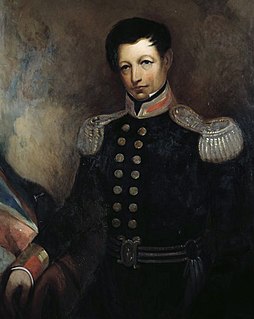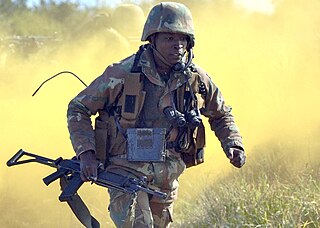
Captain William Hobson was a British Royal Navy officer who served as the first Governor of New Zealand. He was a co-author of the Treaty of Waitangi.

James Busby was appointed in 1833 as the British Resident in New Zealand, and became involved in drafting both the 1835 Declaration of the Independence of New Zealand and the 1840 Treaty of Waitangi. As British Resident, he acted as New Zealand's first jurist and the "originator of law in Aotearoa", to whom New Zealand owes almost all of its underlying jurisprudence'. Busby is also regarded as the "father" of the Australian wine industry, as he brought the first collection of vine stock from Spain and France to Australia.

James Caleb Jackson was the inventor of the first dry, whole grain breakfast cereal which he called granula. His views influenced the health reforms of Ellen G. White, one of the founders of the Seventh-day Adventist Church.
The following lists events that happened during 1915 in New Zealand.
James Livingston may refer to:

George Washington Patterson was an American politician in the U.S. State of New York. He served as a member of the United States House of Representatives and as Lieutenant Governor of New York during the 1800s.
The following lists events that happened during 1861 in New Zealand.
The following lists events that happened during 1859 in New Zealand.
1840 is considered a watershed year in the history of New Zealand: The Treaty of Waitangi is signed, British sovereignty over New Zealand is proclaimed, organised European settlement begins, and Auckland and Wellington are both founded.
The following lists events that happened during 1834 in New Zealand.
The following lists events that happened during 1826 in New Zealand.
The following lists events that happened during 1822 in New Zealand.
The following lists events that happened during 1818 in New Zealand.
James Hooker was an American lawyer and politician from New York.
Newtown was a parliamentary electorate in Wellington, New Zealand from 1902 to 1908.

The Colony of New Zealand was a British colony that existed in New Zealand from 1841 to 1907, created as a Crown colony. The power of the British Government was vested in a governor, but the colony was granted self-government in 1852. The 1852 Constitution was inaugurated after the first parliament was elected in 1853, and the first government of New Zealand was formed in 1856. The Colony of New Zealand had three capitals: Old Russell (1841), Auckland (1841–1865), and Wellington. In 1907, the colony became the Dominion of New Zealand with a more explicit recognition of self-government within the British Empire.
The 1867 City of Christchurch by-election was a by-election held on 13 February 1867 during the 4th New Zealand Parliament in the Christchurch electorate of Christchurch.
The 1865 Parnell by-election was a by-election held on 20 April 1865 in the Parnell electorate during the 3rd New Zealand Parliament.
The 1868 Collingwood by-election was a by-election held on 18 March 1868 in the Collingwood electorate during the 4th New Zealand Parliament.
The 1872 Waikato by-election was a by-election held on 1 March 1872 in the Waikato electorate in the Waikato region of New Zealand during the 5th New Zealand Parliament.





